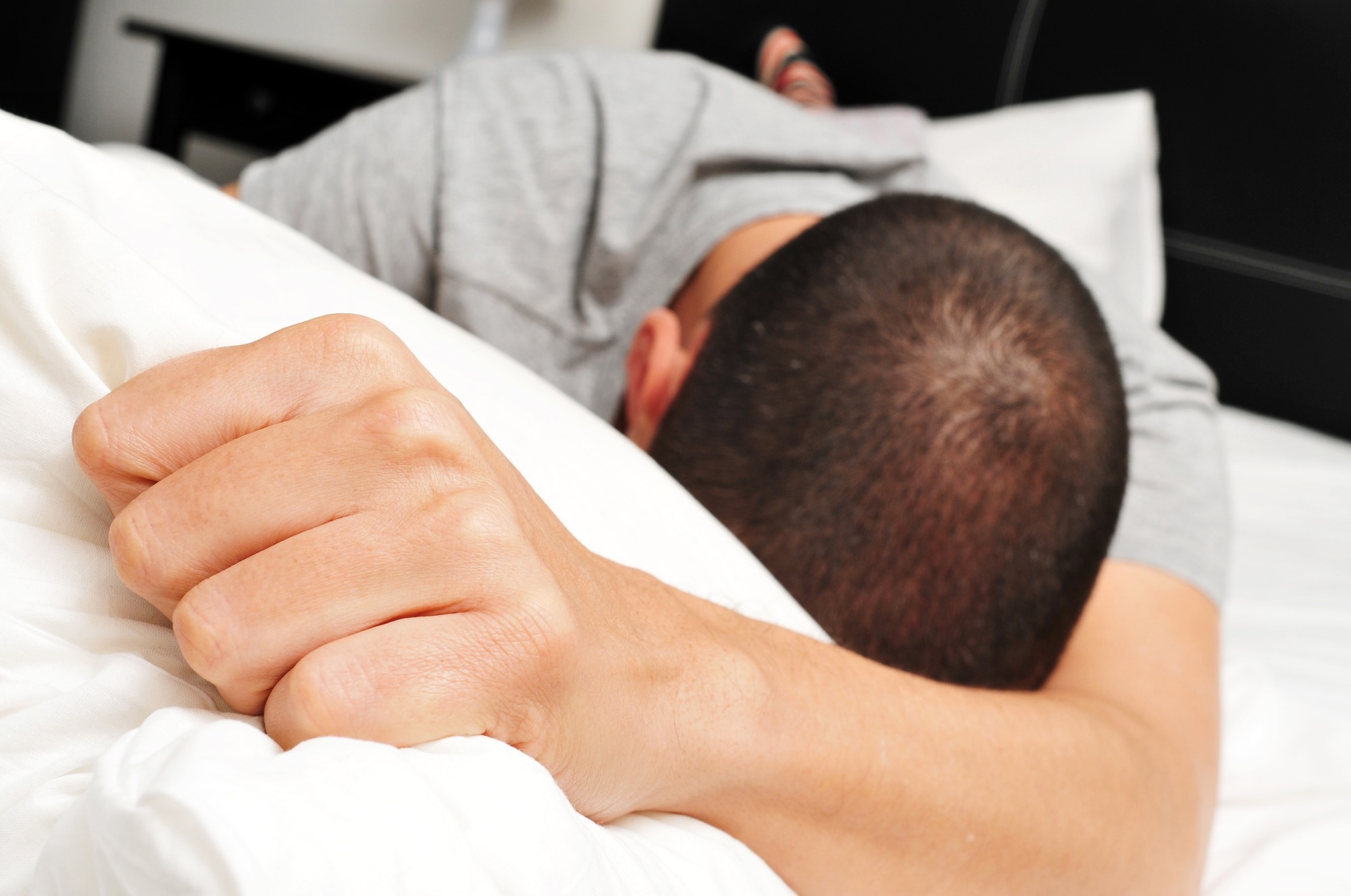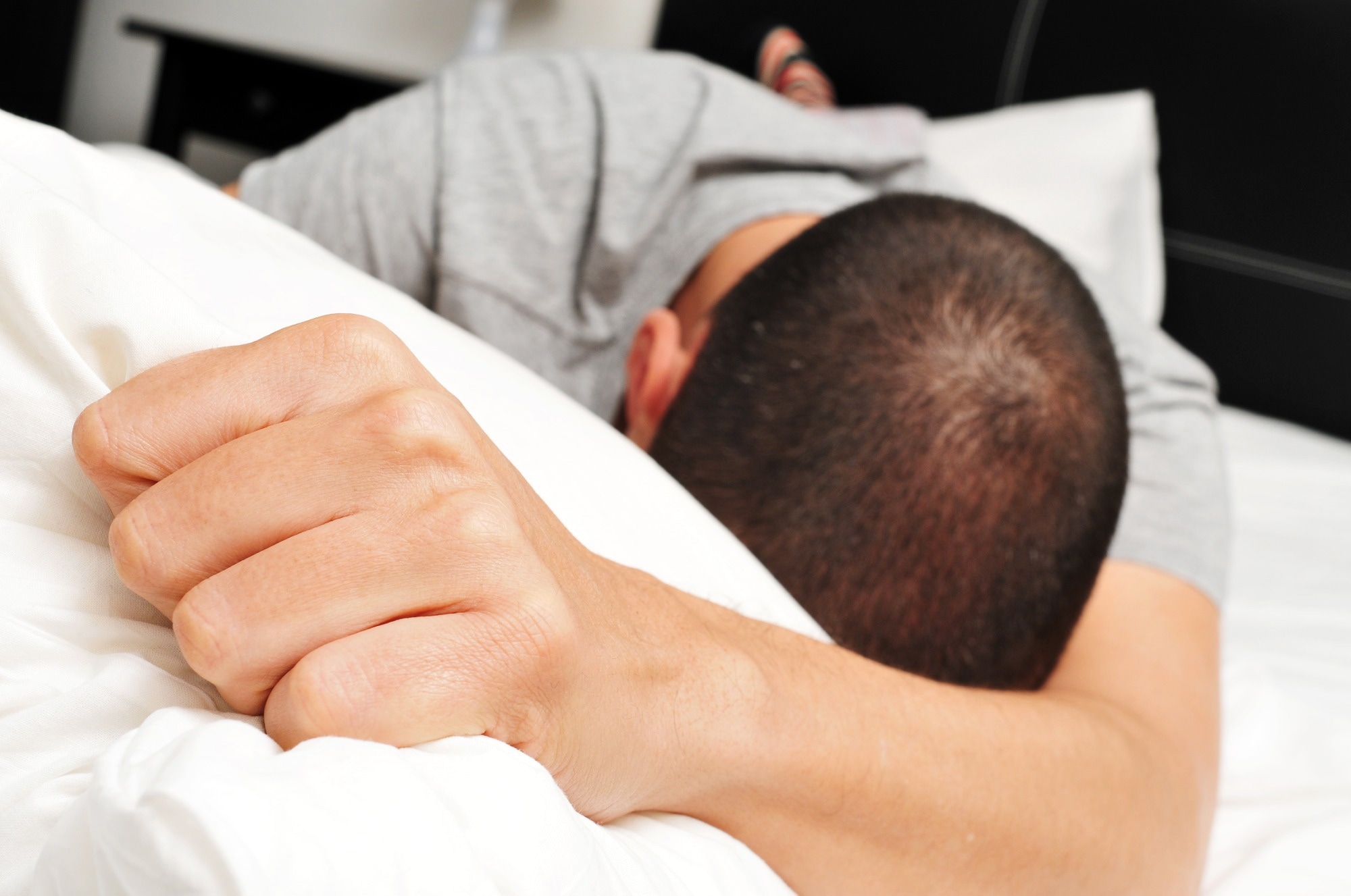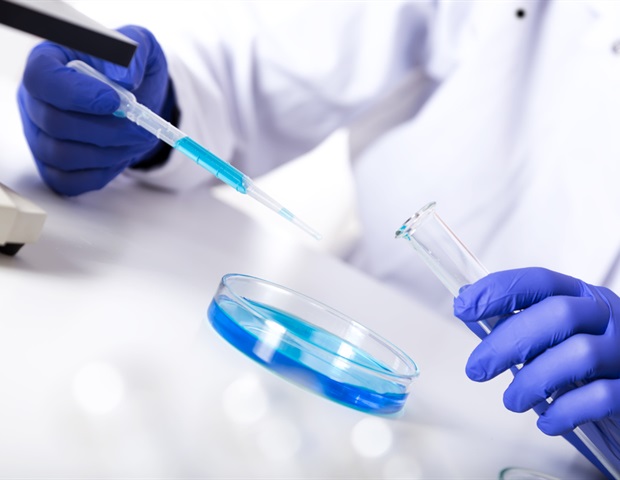In a recent review article published in the International Journal of Impotence Research, researchers synthesized the current knowledge of post-orgasmic illness syndrome (POIS), a rare condition about which little is known.
The authors used keywords to identify 34 research papers on POIS in men in peer-reviewed journals from the medical database PubMed.
 Study: Post orgasmic illness syndrome: a review. Image Credit: nito / Shutterstock
Study: Post orgasmic illness syndrome: a review. Image Credit: nito / Shutterstock
Symptoms of POIS
POIS is associated with symptoms such as nasal congestion, itchy eyes, and extreme fatigue, which occur after intercourse, spontaneous nocturnal ejaculation, and masturbation. The symptoms may appear within moments of ejaculation but generally within 45 minutes and can persist for days. They tend to resolve in seven days.
Based on when POIS first occurs, it has been classified as primary, occurring during puberty, and secondary, occurring later in life. Studies suggest that 14-49% of patients experience primary POIS. POIS is associated with dust mites or animal dander allergies, hay fever, and premature ejaculation.
Seven symptom clusters have been proposed to diagnose POIS: rash, throat symptoms, headache, irritation, poor concentration, myalgia, itchy eyes, nasal congestion, fever, and fatigue. Fatigue appears in nearly 70% of patients, while rashes are rare, appearing in only 2.4%. However, nearly half of the patients did not have symptoms after every ejaculation.
To be diagnosed with POIS, criteria include that patients should present with at least one of the seven symptom clusters, the onset of symptoms should occur within moments of hours after ejaculation, symptoms almost always occur after ejaculation, and that most of them last 2-7 days before resolving spontaneously.
Reasons for POIS
The pathophysiology of POIS remains unknown, but researchers have theorized that it could have an immunological basis involving hypersensitivity to seminal fluid. Positive skin prick testing found evidence of hypersensitivity, but the levels of immunoglobulin E (IgE) remained unchanged.
Another theory is that endogenous opioids are depleted after ejaculation, leading to symptoms. There could also be underlying autoimmune causes in which the urethra’s antigen-presenting cells stimulate the activation of T-cells when they recognize peptides in the semen. A similar condition in women could involve female prostatic tissue in the upper vagina.
Dysregulation of the sympathetic nervous system has also been implicated in POIS, with 57-100% of patients feeling some relief from symptoms after alpha blockade therapy. Hormonal imbalance could also be a reason, as one study found that administering progesterone resolved symptoms.
Treatment and management of POIS
Doctors have used selective serotonin reuptake inhibitors (SSRIs), hormonal manipulation, hyposensitisation, alpha-blockers, and antihistamines. Antihistamines have shown success, particularly if they are non-sedating, as they are well-tolerated and long-acting, decreasing symptoms by 90%.
Alpha-blockers have been associated with improvements, as has the treatment of concomitant testosterone deficiency. Human chorionic gonadotrophin resolved symptoms in one study included hypogonadal men. Modulating the immune system and non-steroidal anti-inflammatory drugs (NSAIDs) have also shown benefits.
Other small-scale studies found that surgery and ligation of the vas deferens, muscle relaxation, and autologous sperm injection may provide relief to patients.
Conclusions
POIS is a rare condition, with only 465 cases documented in medical literature. Despite its apparent rarity, it affects the mental well-being of patients and their partners and could affect up to half of all men in some form. Coping strategies such as abstinence may worsen their relationships.
Sequencing treatments and shedding light on the underlying mechanisms of this condition may lead to the development of uniform diagnostic tests and more effective therapies.









